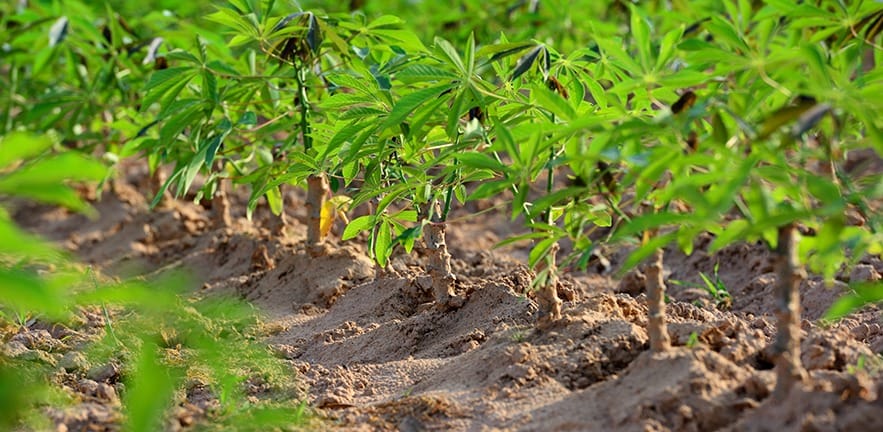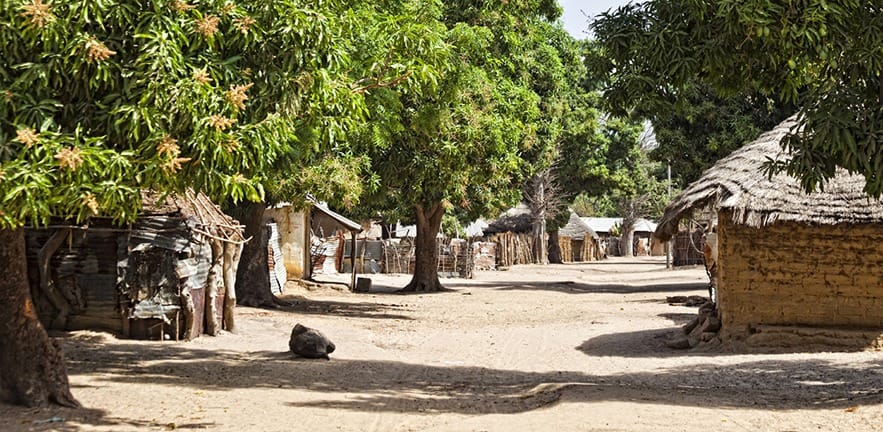Aspuna graduated from Cambridge Social Ventures in January 2017.
Aspuna Group is the world’s first commodity fair-trading house, committed to generate social returns as well as profits. Initially focusing on Africa and the agricultural markets, Aspuna plans to expand its portfolio to include oil, gas and metals across a range of geographical regions.
Aspuna Group is a word creation, derived from the English word ‘aspire’ and the Wolof word ‘Aduna’ (based on the Arabic word ‘Dunya’), meaning ‘world’.
Cambridge Social Ventures East believes that the Aspuna model can facilitate financial independence and economic development of local, often smallholder, producers and their wider communities in any country within which there are communities that are economically disadvantaged.
Idea
“Aspuna’s management team met whilst studying on the Executive MBA programme at Cambridge Judge Business School. We’re a commodities production, processing and trading house with a social impact focus. Our vision is to be operating across different commodity sectors, including agriculture, metals and energy,” advises Aspuna co-founder Maria-Yassin Jah.
“We’re launching in the agricultural space with our first subsidiary in West Africa, in the Gambia, where we’re currently setting up a cassava processing plant in close cooperation with the government there and the agricultural arm of the UN.
“We’re enabling smallholder farmers to organise themselves into co-operatives to help them better sell their products. Meanwhile, we’re creating a market for cassava for the first time in Gambia. This will enable farmers to stabilise their income by widening their portfolio. This is vital for sustainability as, traditionally, these Gambian farmers have relied on groundnuts and over the last 2 years this crop has become increasingly difficult to plant and harvest because the climate in Gambia is getting hotter and drier,” she explains.
“Cassava is a more resilient and robust crop, which needs less rain and less intensive farming methods and so there is a huge incentive for Gambian farmers to grow more of it. We’ve toured the country on a marketing campaign, educating farmers about what we’re trying to do and we’ve caused a lot of excitement. In fact, Gambian smallholder farmers are organising themselves at the moment, selecting heads of their local cooperative to act as a spokesperson and to deal directly with us,” Maria-Yassin adds.
As well as facilitating smallholder cooperatives and working with the government and UN to create a market for its products, Aspuna is setting up a factory in The Gambia, ensuring that production is local, thereby locking in all of the potential value of this commodity into the community. This will be the model this social venture will use in all future projects and is a model that will be beneficial to any country within which there are communities that are economically disadvantaged that could benefit from Aspuna’s approach of creating markets and income streams.
People
Aspuna Group is a University of Cambridge spinout. The Aspuna Group management team met on the Executive MBA programme at Cambridge Judge Business School. Together, they offer extensive experience in commodities, stretching from banking to commodities trading, consulting, energy research and analysis, and commercial law.
Before setting up Aspuna, Managing Director Dr Luis Prazeres worked as a senior manager within EY’s Financial Services Risk practice (Quantitative Advisory Services team), as Head of Commodities and Head of Quantitative Analytics for a number of boutique consultancies in London and at JP Morgan Market Risk Equities and Quant Commodities in London.
Prior to co-founding the Aspuna Group, Managing Director Maria-Yassin Jah was a Senior Gas Market Analyst with E.ON Global Commodities, Europe’s largest asset-backed commodity trader, having been in gas analytics for a number of years – first as an external analyst at Platts, a McGraw-Hill Financial’s business, and since 2010 as an in-house gas expert.
Impact
Aspuna is a commodities trader with a difference: its very purpose is to create and add economic and social value to the product and communities with and within which it works.
Its launch project in The Gambia includes setting up a factory to process the cassava grown by the local farmers’ cooperatives. This factory will initially employ 20-30 people, an important development in a country that currently relies very heavily on tourism for income.
Unskilled local workers will be given the opportunity to learn a skill. Local university graduates who are currently struggling to gain employment will be given the opportunity to work in managerial positions, “something that the government is extremely excited about,” advises Maria-Yassin.
As well as the social impact generated by Aspuna’s commercial arm, in terms of creating employment, a market for Gambian smallholder farmers and the ability to stabilise their income and manage the effects of a change of climate in Gambia, Aspuna will be channelling a substantial share of its profits into its charitable foundation to be used for healthcare and education projects in the countries it operates.
“We’re all about building strong and fair partnerships with our local suppliers and producers with the aim of benefitting our host communities and supporting them in their economic and social development,” Maria-Yassin concludes.
Get in touch
Aspuna is interested in connecting with anyone with business connections in Africa, anyone in the commodities world (specifically on the agricultural side of things), anyone interested in hearing more, or, indeed, in investing.
Tel: +44 (0)7932 603850
News about Aspuna Group
Entrepreneurship and innovation
Venturing forth: Building a starch business from scratch
From gas to tapioca: venture founded by former commodities traders helps farmers in Gambia.
Three students who completed the Executive MBA programme at Cambridge Judge Business School have started a commodities trading house that focuses on Africa and social responsibility.




